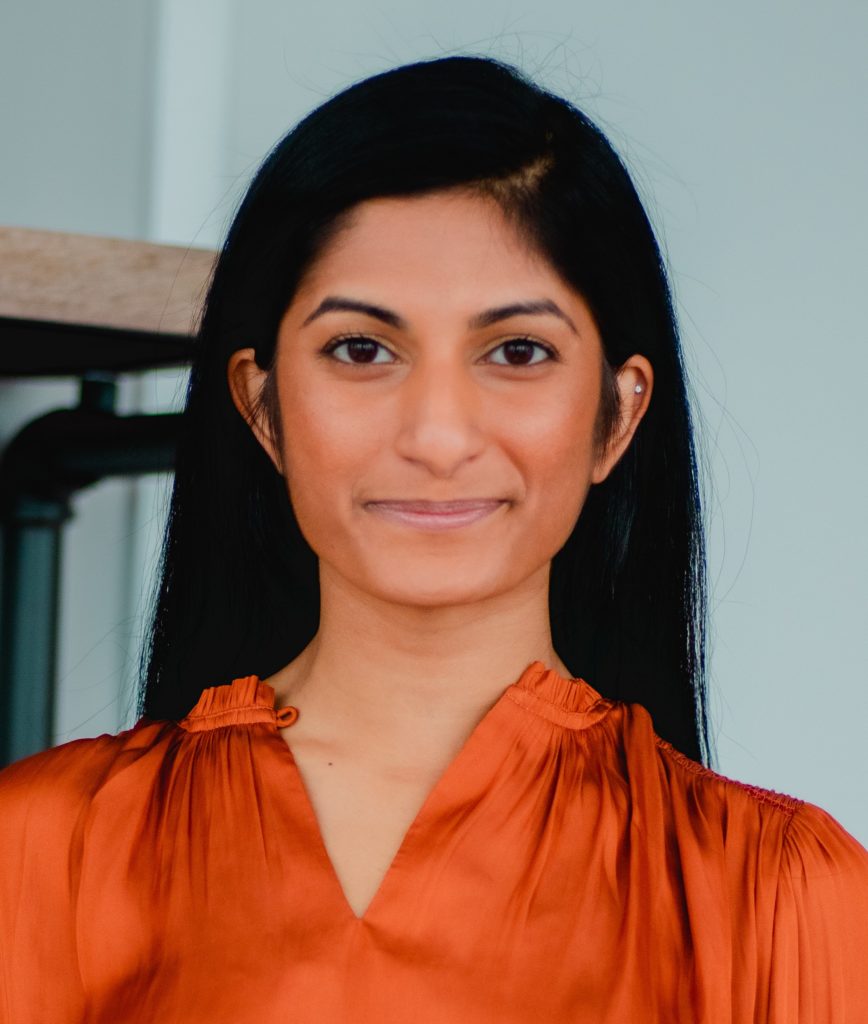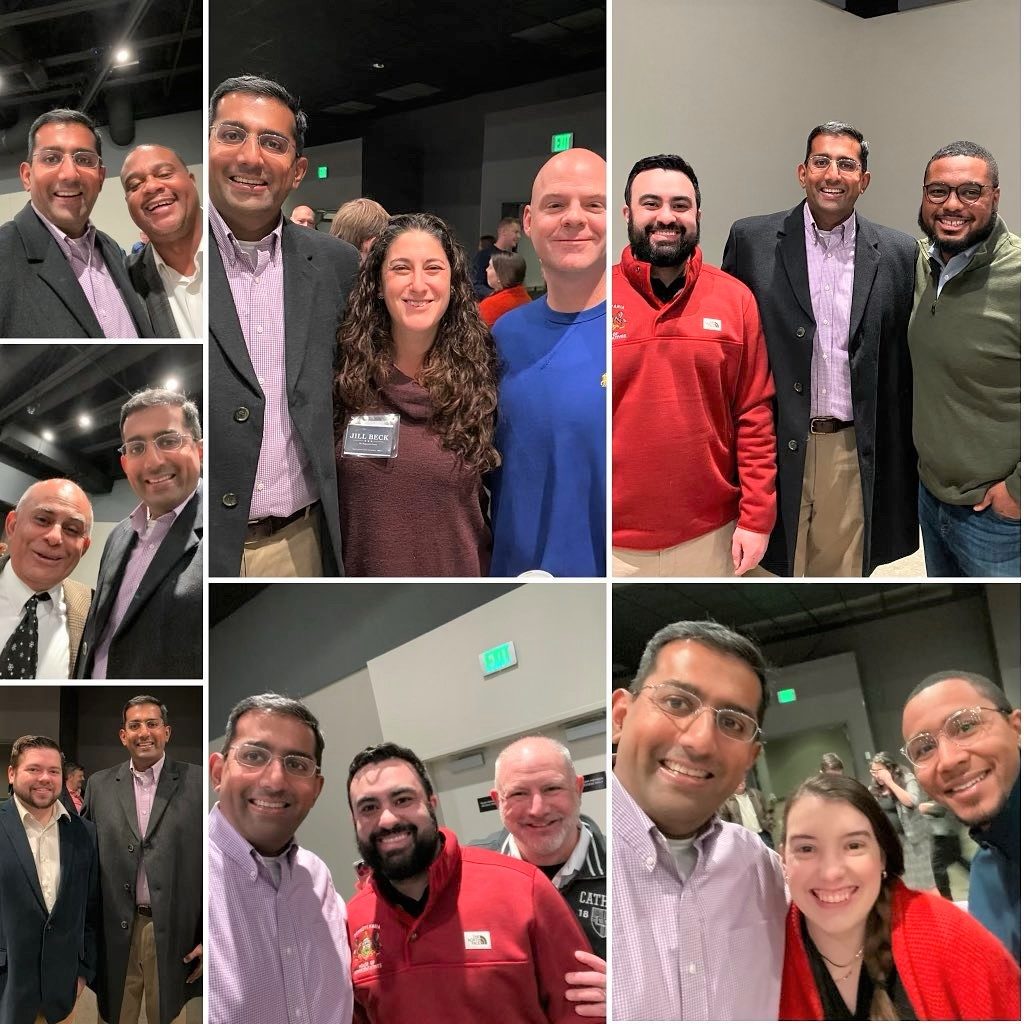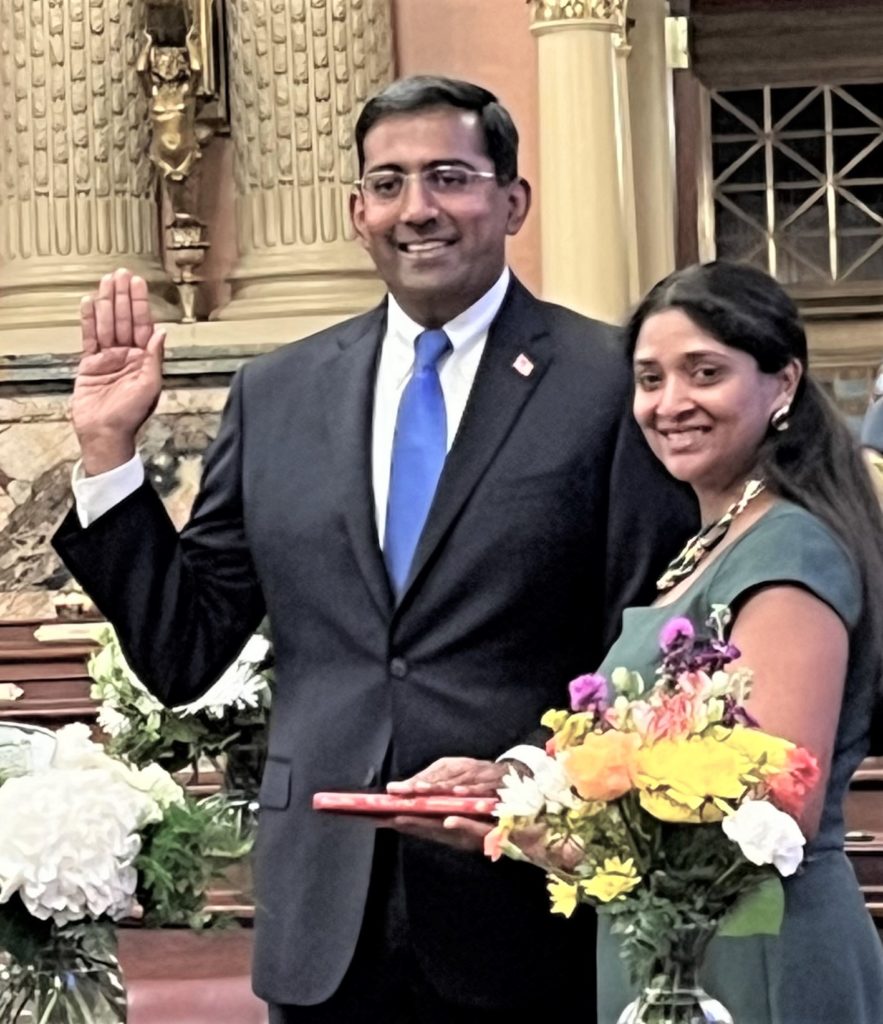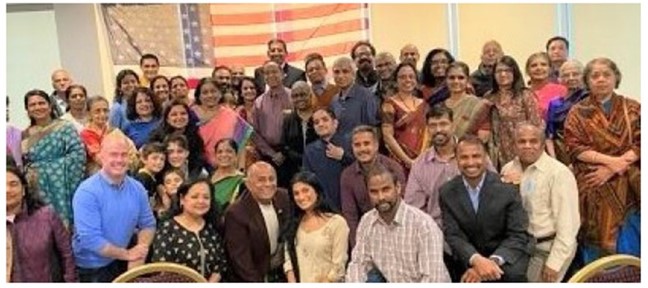By Ramita Ravi, New York, NY
Edior’s Note: Ramita Ravi, a Pittsburgh native, graduated from the University of Pennsylvania with a degree in Health & Societies. She moved to New York to pursue dance professionally and became the first Indian to be featured on So You Think You Can Dance. She dances for TV/film/theater and recently choreographed for Coachella, Miss America, and opened a Broadway bound musical. Ramita is Co-Founder and CEO of a tech startup incubated at The Wharton School: Artswrk, the world’s first marketplace to hire artists.
Born in Madurai, Tamil Nadu, Dr. Arvind Venkat immigrated with his parents to the Detroit area in his early childhood. His parents were young physicians when they came to this country. Like many others in their generation, they came to pursue a higher education in their fields. After their medical residency, his parents talked about moving back to India, but found a home in the strong Tamil community that was already growing in the Detroit Area, like in many other parts of the US in the 1970s and 80s.
Dr. Venkat went to Harvard University where he majored in History and Science. He wanted to become a lawyer, but after a law internship during his freshman summer, he decided to pursue medicine. Given his diversified interests, he felt that his undergrad education in history and science was a great fit to kick off his his journey on how the sciences of health intersect with society. He went to Yale University for medical school and did his emergency medicine residency at the University of Cincinnati’s Hospital.
In medical school, he met his wife Veena, a longtime Pittsburgh native. They got married and settled in Pittsburgh. As an emergency physician, Dr. Venkat was immersed in work at the critical intersection of healthcare and society – in the Emergency Room. He says with a deep sense of satisfaction, “In the emergency room, all patients get medical care regardless of their socioeconomic status, with no questions asked. It is the one place in America where most barriers to medical care fall away, and physicians make an immediate impact on people’s lives in life-threatening situations.”
Simultaneously, he joined the faculty at the Allegheny General Hospital working on public health programs from flu vaccination projects to training for EMS providers, and initiatives on the needs of those on the autism spectrum, and on the importance of a greater voice for emergency physicians and their patients. He started working with the Pennsylvania College of Emergency Physicians and eventually became the president of the organization, with opportunities to improve care in emergency rooms across the state.
A combination of these experiences gravitated Dr. Venkat to the public sector. “The real catalyst was the COVID-19 pandemic in 2020,” says Dr Venkat. “During the early days of the pandemic, it became clear to me that the public health system needs greater resources and resilience – and it also needs trust from the community at large. That is when I decided to run for elected public office to be a public health advocate and help pass legislation that would reach PA residents in times of dire need.”
Dr. Venkat launched his campaign on the Democratic ticket in February 2022 seeking to represent the 30th District in the Pennsylvania House of Representatives in Harrisburg. He spent the bulk of time knocking on a grand total of 13,000 doors. The 30th District in the Lower House of the Penna Assembly includes McCandless, Franklin Park, Ohio Township, Kilbuck, Emsworth, Ben Avon, Ben Avon Heights, and the western part of Hampton Township. The district is 85% Caucasian, 15% minority with South Asians making up about seven percent of the population. Its residents are mostly college-educated with a large STEM workforce and sa strong public school system.
“Taking time to make one-on-one connections with voters was the most important and most enjoyable part of my campaign,” says Venkat. “As I met my future constituents, I opened conversations around public health, public safety, and public education. I touched on difficult topics like affordable healthcare, women’s reproductive rights, and gun safety. I sometimes spent thirty minutes to an hour having a dialogue with folks on these tricky topics — even when they disagreed.” While this might not have changed his voters’ minds on those touchy topics, it certainly allowed them to hear the other perspective and reach common ground. Venkat says with great satisfaction, “The lesson from this is that having a willingness to meet people where they are and engage them in conversation is important to generate collective action and progress.”
The 30th District has a population of 64,000 residents. With 34,000 voters casting their ballots, In the November 2022 election, Venkat defeated his Republican opponent Cindy Kirk with a comfortable margin of 55/45.
In America, as everywhere else in the world, the reality of any electoral political campaign is that it needs money—a lot of it, in fact. “And this election was,” says Venkat ruefully, “a $2 million campaign for this single state house seat.” With 34,000 voters going to the polls, this campaign cost almost $59 per voter.
For comparison, in the 2020 presidential campaign, Biden and Trump got 81 million and 74 million votes respectively, with the two campaigns spending $5.8 billion. (Reference: www.tinyurl.com/2020PresidentialRace) This works out to the two campaigns together spending only $37 per voter in the 2020 US presidential race.
Just imagine, the 2022 election for Pennsylvania District 30 was more expensive per voter than even the 2020 US Presidential campaign! This is insane!
To raise funds, Venkat drew on support from friends, family, and community members who shared the importance of investing in the public sector and using resources to make their voices heard.
While the South Asian community generally shies away from electoral politics, Venkat spoke to South Asians here on the importance of being leaders and trailblazers in public life and in electoral offices. Venkat believes that, just because that representation has not existed to date does not mean it should not be a reality. He says, “We get the elected leaders that we deserve. In my nine-month long campaign, I received countless messages of support, had meaningful conversations, and felt energized by the idea of South Asians organizing to vote and making their voices heard in the political process.”
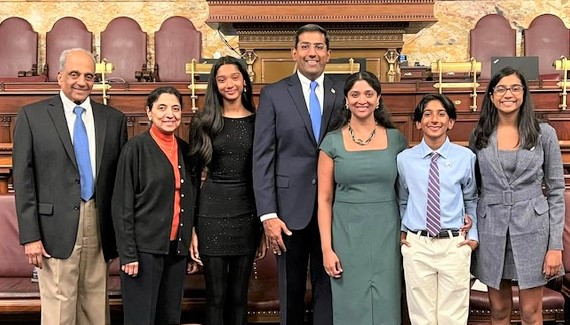
Dr. Venkat will head to Harrisburg to officially start his term in early January. When discussing what his early days will look like, a few things came up. First, the state house flipped control from Republican to Democrat (Democrats: 102, Republicans: 101). However, there are now three vacant seats from representatives who either moved to higher office or unfortunately passed away before the term began. As a result, there will be special elections for these seats. Dr. Venkat feels that it is imperative that these elections happen early so that each district has representation in the state house. Another Indian American, Bhavini Patel, has announced her candidacy to fill the vacancy in one of these open State House seats. If you live in that region, please look out for her, and learn about her work.
Once Dr Venkat is in office, he hopes to advocate for funding for early responders, investments in public education and childcare, policies around affordable and accessible healthcare, preserving reproductive rights for women at the state level, and expanding access to the ballot box through methods like early in-person voting.
While we as a country are often drawn to national elections, it is the state and local levels that closely affect our daily lives. Whether school board elections, county commissioner races, or others, these local elections require the same energy, turnout, and attention to make sure our voices are heard in the political process. Arvind feels excited that it is trending upward – in 2014, voter turnout was 30% nationwide, but this year it was 70% in his district — imagine if we only could inch closer to 90% to get elected leaders that represent all our voices.
It is with love, care, and support from the South Asian community, and communities at large, that Dr. Venkat ran in this race. He says he is a product of this community – his wife grew up here, they moved here, and they are raising their family here. As a community, it is imperative that we are engaged in the political sphere and make our voices heard – whether by supporting candidates, voting in every election, or running for office. We have the opportunity to share the values our families brought to the US and make this country even better for the next generation. Dr. Venkat is the first Indian American in this position in Harrisburg. He is confident and excited that he will not be the last. And so are we. ∎

